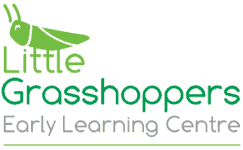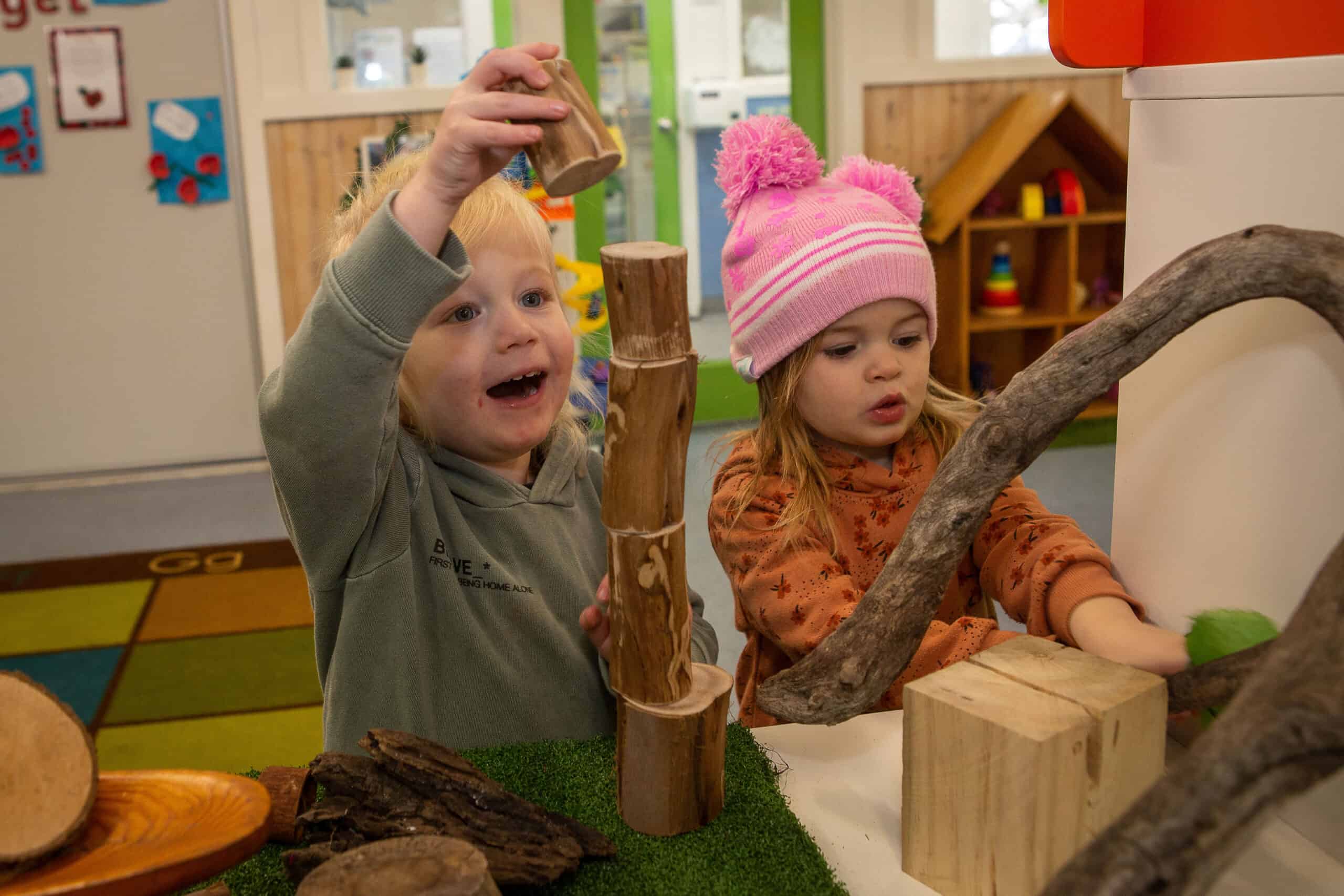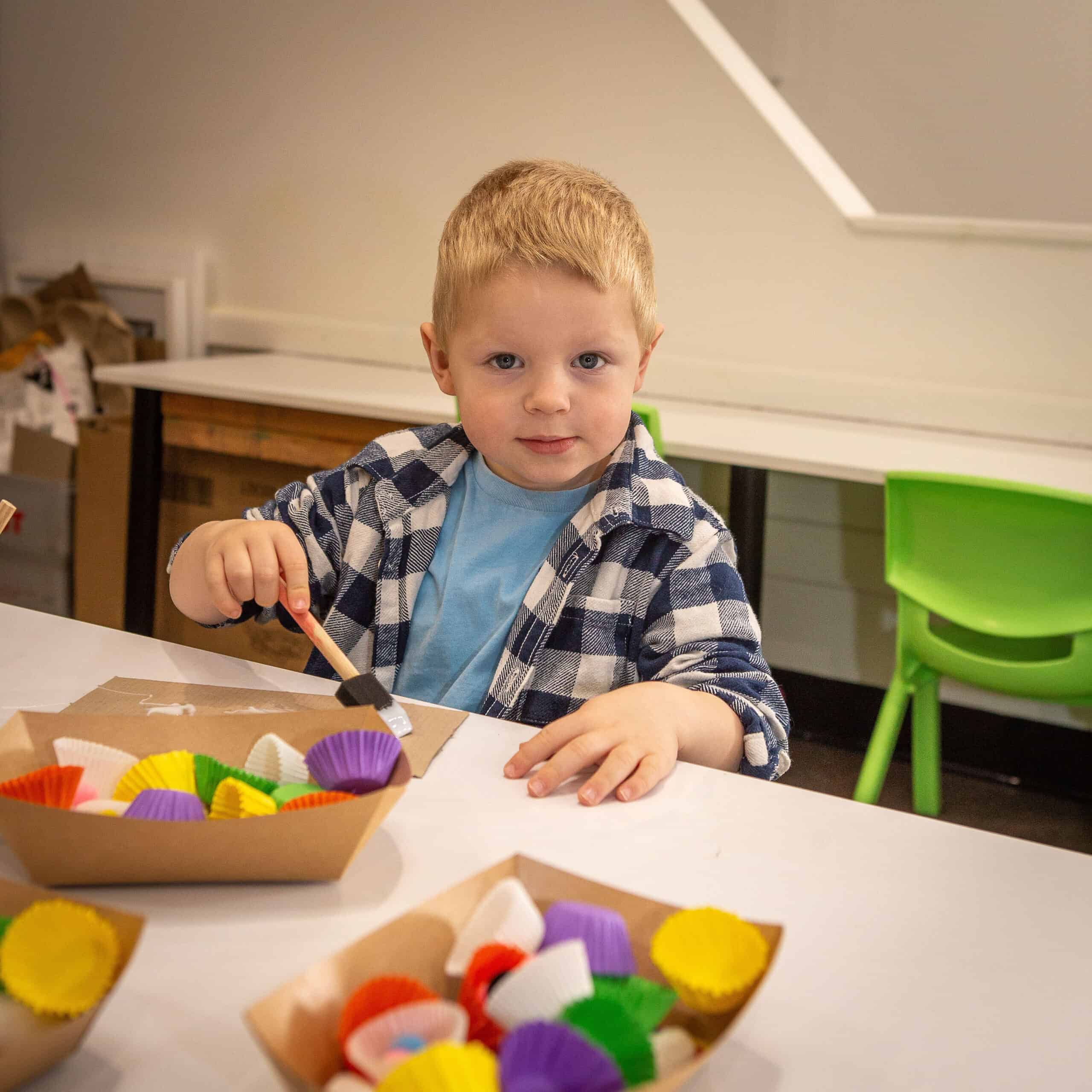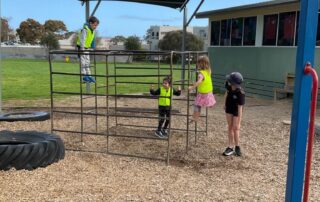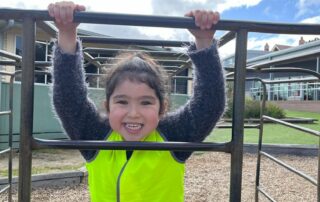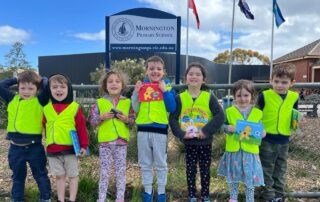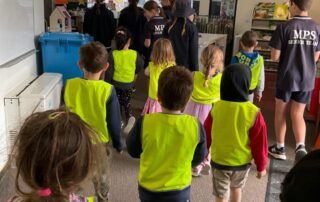Starting school is a significant milestone in a child’s life, and preparing your child for this transition is crucial. It sets the foundation for their educational journey, builds confidence, and eases the adjustment to a structured learning environment
In this blog, we’ll explore various ways you can prepare your kinder children for school, both academically and emotionally along with the steps we at Little Grasshoppers are taking to support you.
Firstly, it’s important to remember that it’s not just literacy and numeracy that is going to smooth the way into Primary School.
Many parents mistakenly assume that if their child can write their name and count to 20 then we can dust the sandpit from our hands. In fact, children don’t specifically need those skills, many Prep teachers would prefer you left that to them! What they do need though are a few foundational opportunities covering fine motor, executive function, social and behavioural skills
That’s not to say that you ignore literacy and numeracy altogether, but more importantly you encourage interest and day to day competency.
Developing Basic Academic Skills
Early Literacy Skills:
Encourage a love for books and reading by introducing your child to age-appropriate books. Read to them daily, pointing to words as you read, and ask them questions about the story. You can also teach them the alphabet and basic phonics.
Math Basics:
Introduce your child to basic math concepts, like counting, identifying shapes, and understanding simple patterns. Use everyday objects and situations to make learning math fun and practical.
Fine Motor Skills:
Strengthen fine motor skills through activities like colouring, cutting with safety scissors, and building with small blocks. These finger strength and grip skills will be essential for writing and other school tasks.
Learning Through Play: Encourage learning through play by providing age-appropriate educational toys and activities. This can be as simple as peg counting as you hang the washing, counting fruit (1 piece for each school day lunch) at the shops, watching whether bubbles rise, float or sink in the wind etc. This can stimulate cognitive development and creativity.
Social and Emotional Preparation
Independence:
Encourage your child to undertake age-appropriate tasks independently, like dressing themselves, using the toilet, and tidying up their toys. School will require a degree of self-sufficiency.
At Little Grasshoppers we promote independence in many ways. Offering self-choice activity shelves in play and encouraging play based activities that promote self-help skills. These could include feeding and dressing a baby doll, brushing the teddies teeth at the dentist, pouring imaginary tea in the kitchen for your friends or brushing hair at the hairdressers.
Social Skills: Arrange playdates to help your child interact with peers and develop essential social skills, such as sharing, taking turns, and resolving conflicts. This will make the transition to school smoother.
Emotional Resilience: Talk to your child about their feelings and emotions. Teach them how to express themselves, manage frustration, and cope with separation anxiety. Assure them that it’s okay to feel nervous about school. For more on tips to assist your child with behaviour, see our September blog here.
Establishing a Routine
Sleep Schedule: Ensure your child gets enough sleep by establishing a consistent bedtime routine. A well-rested child is more likely to be engaged and ready to learn at school.
Mealtime Routine: Foster healthy eating habits and independence by involving your child in meal preparation. Discuss the importance of nutrition and healthy eating.
Morning and Evening Routines: Create a structured morning routine that includes dressing, breakfast, and brushing teeth. This will help your child adapt to the school’s daily schedule. Also, establish an evening routine that includes quiet time and a regular bedtime.
Exploring the Environment
School Visit: Take your child to visit the school before the first day. Familiarize them with the classrooms, playground, and meet their teachers if possible. This can reduce the fear of the unknown. At Little Grasshoppers we work with local schools to coordinate visits for our 4 year-old groups in Term 4 of their final Kindergarten year. Familiarising them with the landscape of the school and introducing them to current students who often then become part of the Buddy system the following year. These visits can demystify the concept of School, particularly for those without older siblings.
Educational Outings: Visit museums, libraries, parks, and other educational places. This helps expand your child’s horizons and keeps them curious about the world around them.
Little Grasshopper’s Bright Minds Program introduces your child to the world around them through our Community Engage sessions. Important learnings around road safety are absorbed while walking within the community.
We discuss dangers we see such as cars, bikes, dogs. We also discuss stranger danger in an age-appropriate manner, laying the foundation for safer travels to and from school.
Our Main St 4-year-old teacher, Vanessa Cameron places heavy emphasis on orienting children to the expectations of the Prep classroom through role-play.
Vanessa introduces our children to a classroom helpers program in which they are offered roles for the day. Through this initiative children are taking ownership for their room and its belongings, taking responsibility for their own possessions and providing care to others. Through our ‘OUR WORLD’ program this includes caring for the animals and both their inside and outdoor environment through appropriate disposal of rubbish, clearing up after their activities (including recycling initiatives) and putting their jumpers/lunch boxes etc back into their bags. All skills that will assist in transitioning into the expectations of a Junior School classroom.
Communication with School Staff
Parent-Teacher Communication: Establish a healthy line of communication with your child’s teachers. Attend orientation meetings and keep up to date with the school’s policies and curriculum.
Special Needs or Concerns: If your child has special needs or concerns, communicate with the school early. The school may be able to provide extra support or accommodations.
Preparing your 4-year-old kinder child for school is a holistic process that encompasses academic, social, and emotional development. By fostering a love for learning, building independence, and providing a structured routine, you can set your child up for success. Keep in mind that every child is unique, so be flexible and patient in your approach, and remember that the goal is to make the transition to school an enjoyable and enriching experience for your child.
